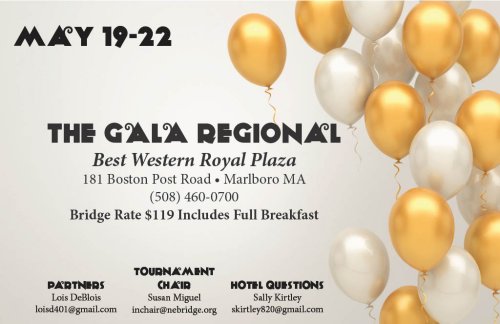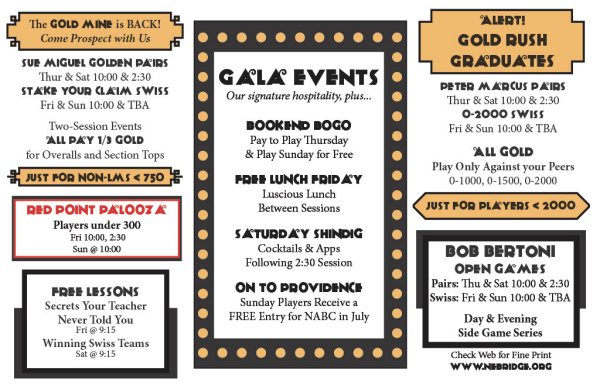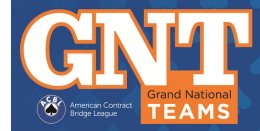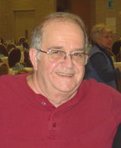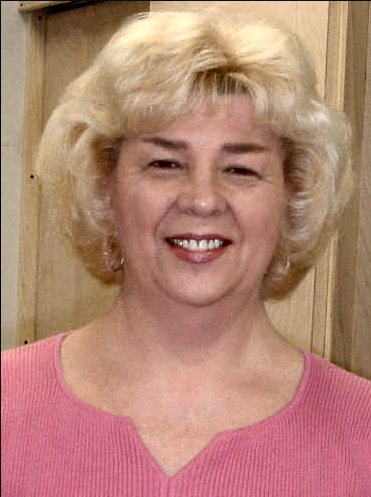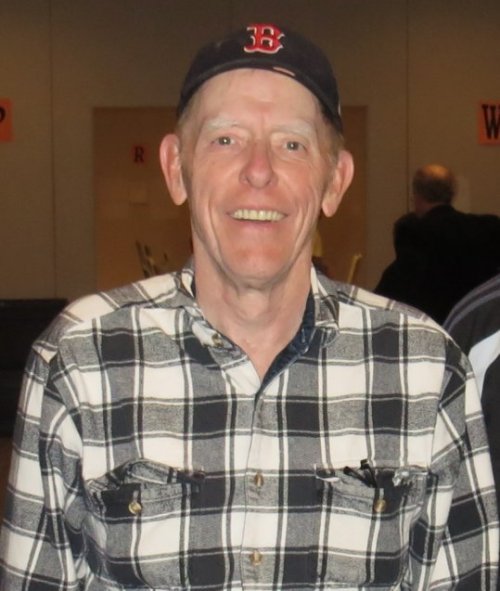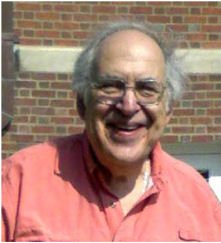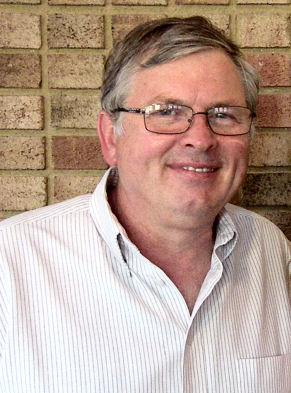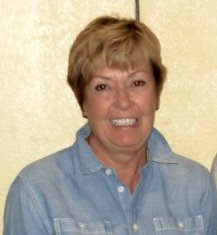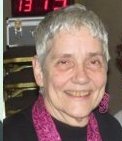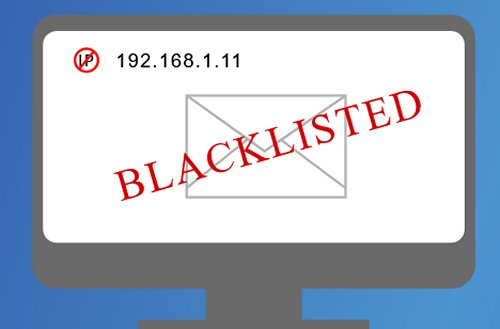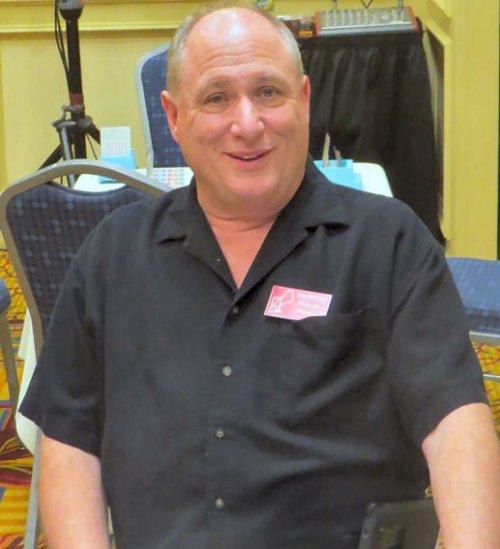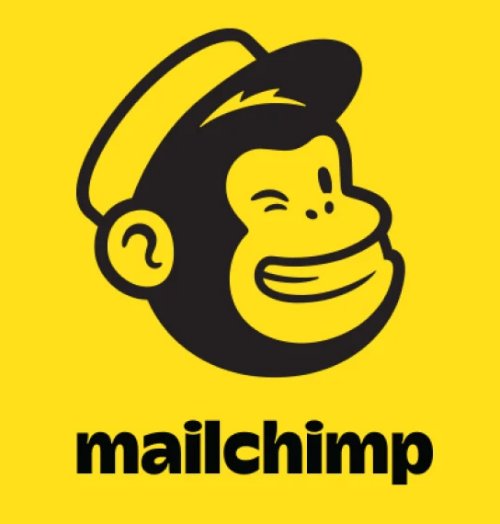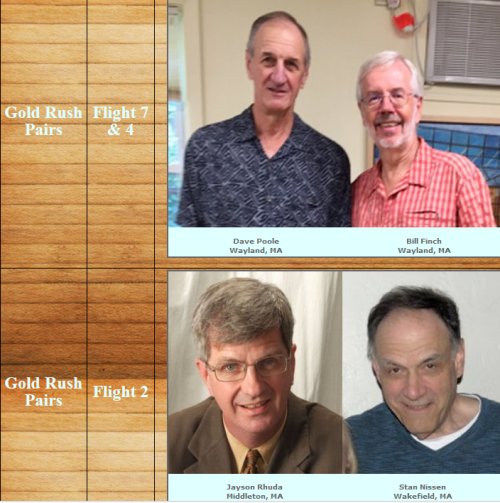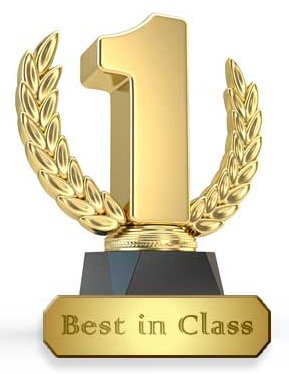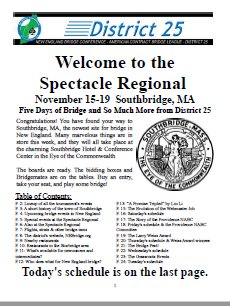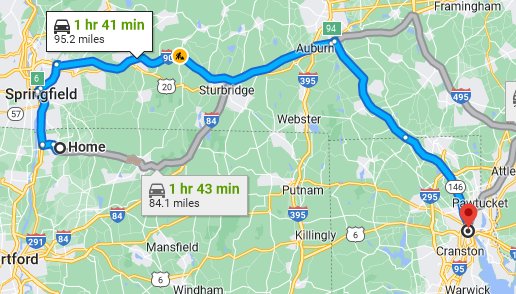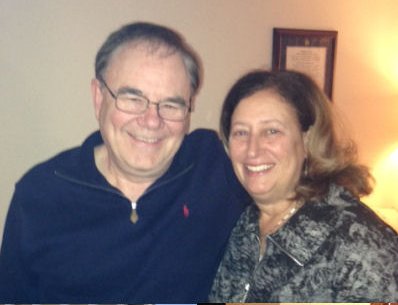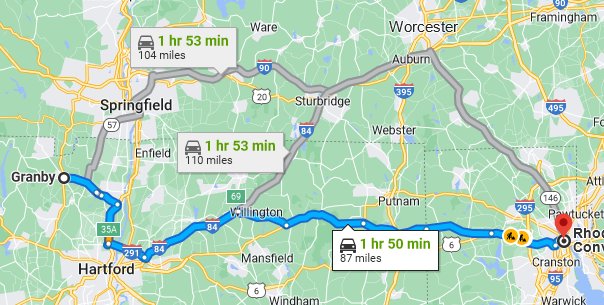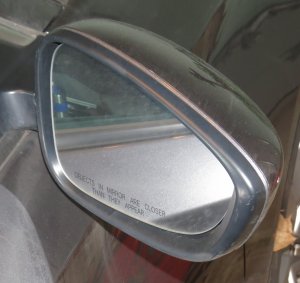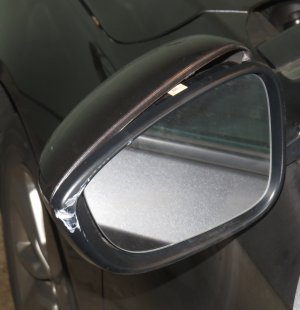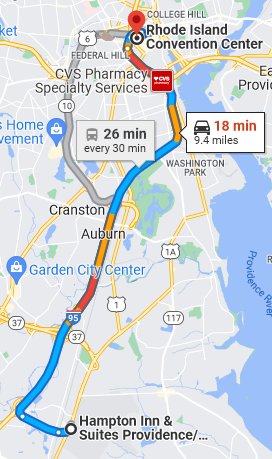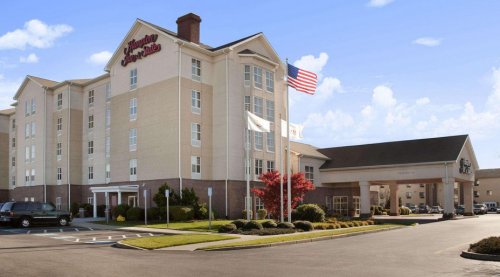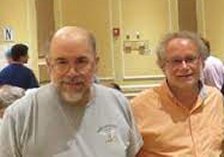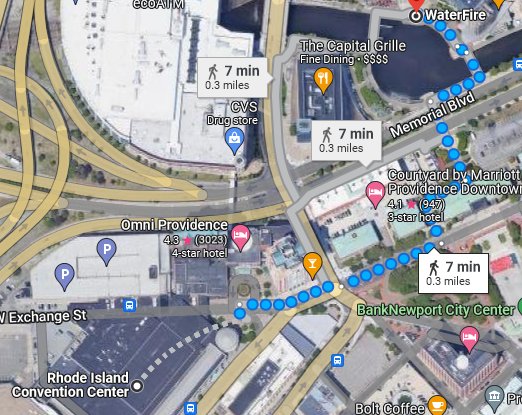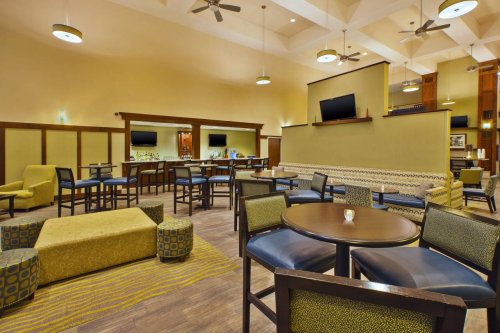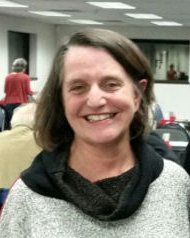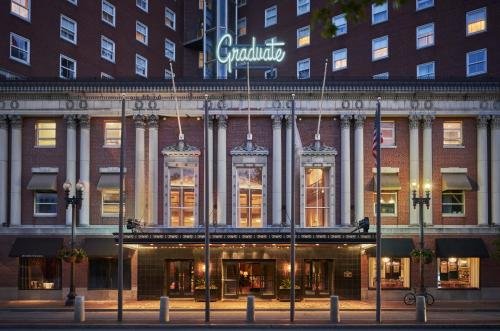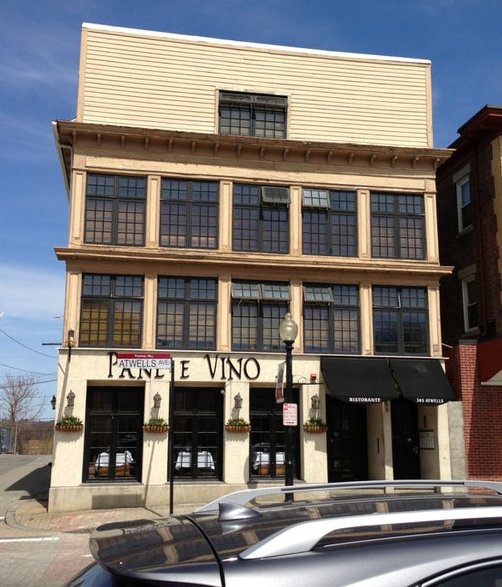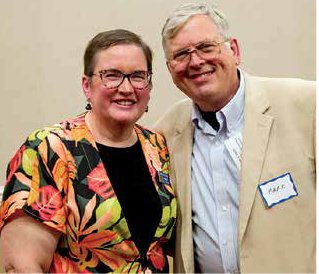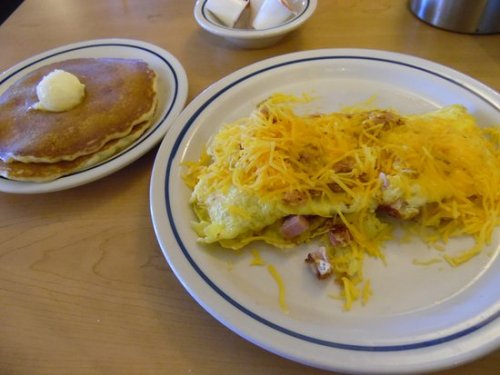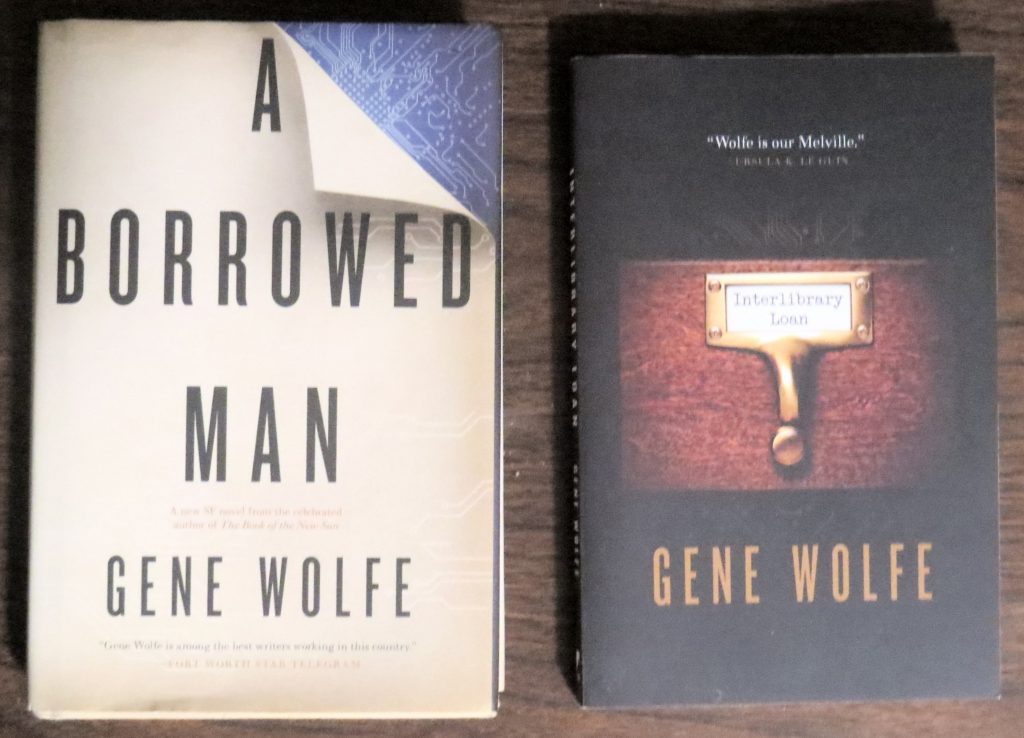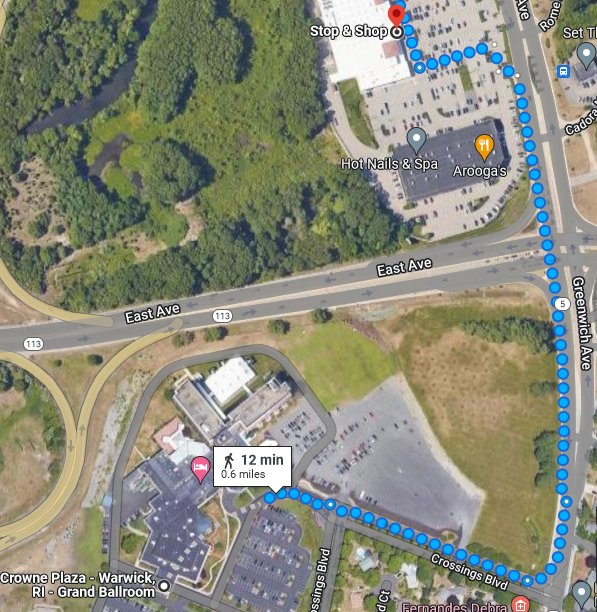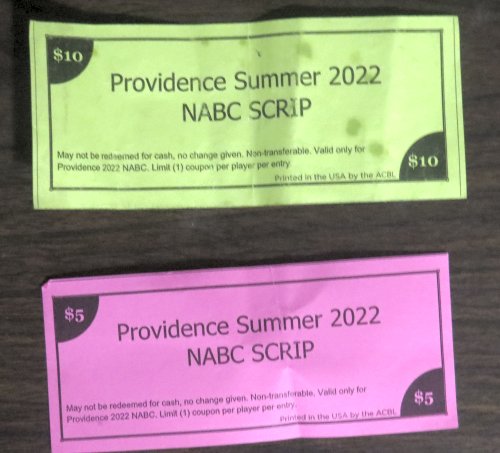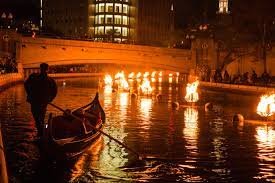Three tournaments. Continue reading
After the Covid-19 vaccinations became readily available in the late spring of 2021 competitive bridge1 started a very slow return in New England. The Hartford Bridge Club reopened in August of 2021, but attendance was disappointing. The Simsbury Bridge Club’s first game was a five-table gathering on September 18. The only sectional held in New England in the entire year was an EMBA event in Watertown on December 10-12. It drew 133 tables, exactly half of the attendance at the equivalent tournament in 2019.
The Executive Committee (EC) of District 25 planned to hold a tournament in Warwick, RI, at the end of August. I had publicized it rather heavily.2 However, it—and every other regional event scheduled for August—was canceled by the ACBL. A regional tournament that was also planned for November in Mansfield, MA, was canceled by a vote at a Zoom meeting of the EC.
District 25’s Tournament Scheduling Committee (TSC) held a couple of Zoom meetings in late 2021 in which it decided to change the 2022 schedule drastically. Peter Marcus, the district’s Director-in-Chief, had been arguing—with some degree of seriousness—that the district should schedule no tournaments at all for 2022 rather than play by the ACBL’s rules. Instead the TSC decided to shelve the plans for three events:
- The Presidential Regional that had traditionally been held in February in Connecticut.
- The intermediate/novice event scheduled for April that had been called the Rainbow Weekend or Gold Mine.
- The Senior Regional/Cape Cod Sectional that was also planned for April.
Although I was a voting member of both committees, I was unable to attend either Zoom meeting and was shocked when the TSC proposed this at the Zoom meeting of the EC in early 2022. I voted loudly against the recommendations, but no one else did.
Instead, a four-day tournament called the Gala Regional was scheduled for May 19-22 in Marlborough3, MA, in a hotel that had never before been used for a tournament. The flyer for the event has been posted here. I had a long streak of attendance at regional events, but I could not attend this one because of a European cruise that had been scheduled many months earlier (for a period in which D25 had never run a tournament) and had already been postponed twice. That adventure has been described here.
On April 14 I sent out the first promotional email for the Gala to over 2,000 players in Districts 3, 24, and 25 who had less than 300 master points. A copy is posted here. 61% of the recipients opened the email, but only 51 of them clicked on the link to the flyer.
On the same day I sent a slightly different version to the players in the same districts with between 300 and 750 masterpoints. A copy is posted here. This group was about half the size of the previous one. Again, about 61 percent opened the email; 48 clicked on the link to the flyer.
The third version was sent to “Gold Rush Grads”, those with 750-2000 masterpoints, about 1,000 players. A copy was posted here. 58.2 percent opened it, and 46 clicked on the link.
The fourth version went to players with over 2,000 masterpoints. A copy was posted here. 56+ percent opened it, but only 20 clicked on the link.
So, only a total of 165 players clicked on the link to the flyer. I haven’t checked every email, but I suspect that this was the worst rate of any set of emails promoting tournaments that I had ever sent. People were either still scared of Covid-19, or they were upset about the vaccination requirement. Or maybe my emails were less effective because it was difficult for me to be enthusiastic and creative about the promotion of an event that I could not attend.
I sent a second email a week later to emphasize the convenience and quality of the hotel, which I had never seen. Only people with less than 50 masterpoints were excluded from this email (copy posted here). Nearly 59 percent opened it, and 127 clicked on the link to the flyer. There was no link to the hotel; reservations needed to be made by telephone.
On April 29 I sent a set of three emails that Sue Miguel composed. Her style was much different from mine. A sample of one is posted here. A total of 120 people clicked on the link to the flyer. No further marketing was done.
Sue Wavada attended the Gala, and when she picked me up at Logan Airport after the tournament was over, she reported that she enjoyed it. She also was allowed to take home some balloons.
The Grand National Teams (GNT) was one of the events scheduled to be held at the eleven-day Summer NABC to be held in Providence in July. Both the qualifying tournament in District 25 and the finals of the event had been held online in 2021. Although I hated playing online I played with my partner, Ken Leopold, on Bridge Base Online (BBO) as often as I could. We teamed up with our long-time teammates, Trevor Reeves and Felix Springer.
On October 25 of 2021 I sent an email to all three about the 2022 qualifying tournament for D25:
My total masterpoints went over 2500 yesterday. However, I just checked the ACBL’s Conditions of Contest for the GNT for 2021-2022 (http://web2.acbl.org/documentLibrary/play/coc/gnt/GNT2021-22.pdf). The cutoff date for the GNT is the roster of August 6, 2021. So, I will still be eligible for one more GNT. The finals will be at the summer NABC, which is scheduled for Providence. The date for the qualifying tournament has not been finalized, but it will probably be in April or May.
I hope that you guys will be willing to play with me again in my final opportunity for this tournament.
All three responded positively to this request. On April 28, 2022, I wrote the following email to all three in order to confirm our plans.
The GNT qualifier for Flight B is on April 30 and May 1. I have read the Conditions of Contest. It will be held online under approximately the same conditions as last year. Two teams will qualify if more than eight participate. The cost is $15 per session
The finals in Providence start on Wednesday, July 13.
Is everyone still up for this? If so, I will register us.
Felix responded within an hour or so with this disheartening message: “Dan Morgenstern asked Trevor and me a while back to play in the GNTs with him and his partner and we accepted. Another time.”
This was soul-crushing news. I really wanted to compete in this event with a team that I trusted and could plan strategy with. I forwarded to them a copy six months earlier of their positive responses to my invitation, but neither of them responded to that email.
Ken suggested that we should look for other teammates, but I told him that I did not want to do so. We had played with inferior teammates in this event in 2019, and I had not enjoyed it at all. In that case the event was face-to-face. This would be online, which I could scarcely tolerate even with good teammates.
Felix and Trevor’s team qualified in the second team from D25 and got to play in Providence.
I was heavily involved in the promotion of the Providence NABC, helped with the partnership desk a couple of times, and played bridge almost every day. The beginning of the description of my involvement has been posted here. Felix and Trevor’s team made it to the semifinals, where they lost to the eventual champions.
The first regional tournament that I was able to attend was the Ocean State Regional in Warwick, RI, which ran from August 30-September 5. The flyer has been posted here.
The first promotional email was what I would call a postcard. Sue Miguel designed it. I sent it on July 27, about five weeks before the tournament began, to everyone in D3, D24, and D25, as well as the people who attended in Providence. 41.3 percent of the 15,000 recipients opened the email. 340 clicked on the link to the “schedule”. There was a mistake on it. I sent out a correction the same day. The correction, which has been posted here, had an additional 500 clicks.
I wrote and sent out the second email on August 18 to everyone in D3, D24, and D25. 184 people clicked on the link to the flyer. It has been posted here.
Sue designed an email for 3,000 players in D25 with less than 750 masterpoints. It was sent on August 22. The email, which was posted here, did not contain any links. She also had me send one for the 824 “Gold Rush Graduates” (750-2000).
The less said about the actual tournament the better. On Tuesday Sohail Hassan4, whom I had met at the partnership desk at a tournament before the pandemic, and I did poorly in the Open Pairs. Sohail showed up at the last minute for both sessions. Since there were a few things on our convention card that I was shaky about, this distressed me.
We intended to play in the Wednesday-Thursday knockout, but we were unable to find teammates. Since the schedule had been pared back to save on director’s fees, our only other choice was to play in Wednesday morning’s Side Game5. It was a horrendous experience. Sohail again appeared at the last minute for both sessions, and in the morning he got into a boisterous argument with one of our opponents. The director had to be called to calm them down. I made several mistakes; our scored was miserable. Nevertheless, we had a 58.71 percent game in the afternoon Side Game.
On Thursday we played in the Open Swiss. We teamed up with two guys from Rhode Island, Don Rankin and Bob Potvin. I had played against both of them before. We somehow finished third in B and sixth overall. This was not that great an accomplishment. Most of the participants were teams that had been eliminated from the knockout on the previous day.
I confided to Don that playing with Sohail had been a miserable experience. He replied, “Maybe we should play together.”
On Friday I had scheduled a new partner, Abhi Dutta6, for the knockout. Our teammates were Jim Osofsky and Mike Heider. Although the four of us were fresh from a victory in the sectional in Great Barrington, MA (described here), we could not get any traction in our five-team group. We were eliminated and forced to play in the Open Swiss on Saturday. I remember a general feeling of great frustration, but no details.
The Executive Committee met on Friday. I was in no mood to participate. This version of the Warwick tournament, which had always been the jewel in the district’s crown, seemed pitiful to me. Even though we did not even rent the other ballroom, the main room was not nearly full. The rotunda was used for both the side games and the 299ers, and there was still room to spare. The attendance, by historical standards, was alarmingly low.
We learned that we had taken a financial bath at the Gala, and Warwick was probably worse. The only good news was that, as I for one had come to expect, Joe Brouillard, the treasurer, had turned water into wine with the district’s finances. We still had a lot of money in the bank.
I could hardly believe that the roles of tournament chairman and partnership chairman were no longer going to be handled locally. Sue Miguel was going to do the former, and Denise Bahosh had volunteered for the latter. The problem was that the two new sites, Southbridge and Marlborough, had no natural constituencies. Who would take the responsibilities for them? Nevertheless, I considered it a mistake not to use local people in future tournaments in Warwick.
The decision was made to raise the table fees to $20 and to use the projected revenue to turn the Spectacle Regional into a very enjoyable event. I voted for it and even spoke in favor of the move, but I would have liked to see more details about how Sue Miguel intended to spend all of that extra money.
Mark Aquino, the Regional Director, made a depressing presentation that included the statement, “The ACBL is broken.” I left the meeting with the strong feeling that our best efforts might not be enough to save bridge as we knew it.
The Saturday Open Swiss once again was dominated by teams that had been eliminated in the knockout. We finished fourth in B and won a few gold points for a performance that was not worthy of any recognition.
The Ocean State Regional was the most disappointing tournament that I had ever attended. I had no fun in any event in which I played, and I found the EC meeting depressing in the extreme. The Crowne Plaza was not a disappointment, but only because I had also stayed there during the NABC event in July (description begins here) and no longer expected my room to be cleaned after I used it.
The last D25 tournament of 2022 was the Spectacle Regional, held in Southbridge, MA. It began on Tuesday, November 15, and ended on Saturday, November 19. I had been asked to prepare a Bulletin for this event. I therefore joined Curtis Barton (president), Carolyn Weiser (secretary), Sally Kirtley (tournament manager), and Denise Bahosh (partnership) in a “walk-around” inspection of the facility. Sue Miguel was also expected, but for some reason she was unable to attend.
The hotel/conference center was a nice modern place, but the rooms in which we would be playing were much smaller than the ballrooms in which we usually held regional events. The plan for this event was to provide exceptional hospitality, which meant free food and something new (and free) for newer players. Sue Miguel devised that approach, which she called Fest.
I sent out the first promotional piece on September 9. It was composed by Sue Miguel in the postcard format that she preferred. The message was that a lot of gold would be dispensed in Southbridge. I have posted it here.
Sue designed the piece sent on September 12 as well. It was directed to 2,000 players with less than 150 masterpoints. It provided an introduction to the concept of Fest. It has been posted here
On September 15 I sent a different email that Sue created. It was also in postcard format, but it also contained a link to the schedule that had by then been posted on NEBridge.org. The target audience was everyone in District 3, 24, or 25. It can be viewed here.
On October 19 I sent an email to the same audience. This one was in the format that I ordinarily used, but I emphasized the convenience and uniqueness of the site, not the bridge schedule. I considered the latter very meager. I have posted it here.
On October 25 I sent out another solicitation to those with less than 150 points. This one included the 9/15 postcard, but it also had text that Sue had written to explain the Fest concept. It has been posted here.
The next day I emailed to the rest of the players a message that I had written. This one has been posted here. This was the last email that was sent to promote this event, and it was also the last email that I composed for the district. Sue Miguel took over the creation of the emails more or less by default. I don’t think that they tried to find anyone else to do it.
I intended to promote the “Knock-in Knockout” event because it was the only imaginative offering on the schedule for players with more than 2,250 points. The district had also enjoyed great success at attracting players at all levels to bracketed events like this. However, I had been warned by Sue Miguel and Peter Marcus to avoid any explanation of the event or to use the Kiko abbreviation. Apparently they feared that the ACBL might come down on us. I don’t know why.
I decided to commute from my house in Enfield to the hotel. The drive was less than forty-five minutes each way. Sue planned to drive up on Friday morning, play on Friday, attend the Board of Delegates (BoD) meeting on Saturday, and see what she felt like doing on Saturday.
On Tuesday I played with Sally Kirtley in the Open Pairs. Attendance at all events was meager. Sally and I had not played together often, and we were definitely out of our depth in the open event. Playing with Sally at regional tournaments is always challenging. She was interrupted to deal with some sort of problem fairly often in her role as tournament manager.
On Wednesday Eric Vogel and I teamed up with Jim Osofsky and Mike Heider in the Kiko. There were only three brackets! My recollection is that there were only five teams in our bracket. At any rate, we were eliminated on Wednesday. On Thursday, however, the same foursome finished first in the Y strat of the Open Swiss. It did not seem like much of an accomplishment.
On Friday I played with Abhi Dutta, at least that is what my calendar said. The only game that I was eligible for was the Open Pairs. Abhi should have found a partner with fewer points so that he could play in the Gold Rush Graduate event.
On Friday there was a free lunch consisting of a couple of a couple of pieces of pizza. The hotel was poorly prepared for this. Although the total attendance was not very good, the lines for pizza were very long. I had to rush back for the second session.
While I was in line Pete Matthews and Gary Schwartz complained to me about the fact that the only pairs games available on Wednesday and Thursday were side games. They asked me why no Open Pairs games were scheduled. I said that I did not know. I was not on the Tournament Scheduling Committee any more, but I would bring up up at the EC meeting that night. Previously Robin Hillyard had sent me an email asking why the Sunday games had been eliminated. This was hard on the players who were still gainfully employed. I told him that I would bring that up as well.
I found the attitudes displayed at the EC meeting rather shocking. People were raving about how successful the Fest—a combination of education, free lunch and other goodies, and a short bridge session (also free)—had been. The yardstick for this was that a good number of the forty-four participants had approached the organizers and presenters to offer thanks and praise. Sue Miguel said that it was the best thing that the district had done in twenty-five years. Give me a break.
I, frankly, was much more concerned about the turnout of the people who were willing to pay to play. The attendance in the Gold Rush (0-750 masterpoints) events was shockingly low. My wife Sue had driven up on Friday to play in the Gold Rush pairs. When it did not make, she had to play in an event in which she had little chance of success.
Another surprise at the meeting the report by Mark Oettinger (vice-president). It brought up the possibility of getting more pro teams to come to our tournaments. Evidently Adam Grossack agreed to help with this effort. I wondered if anything would come from this. How would they find them to offer enticements to attend?
My wife Sue and I attended the BoD meeting on Saturday morning. There was no coffee, and the hotel served only breakfast sandwiches that were improperly marked. The only attendees from CT were Paul Burnham, Peter Marcus, Sue and me. That meant that nine delegates from Unit 108 were absent. Curtis announced that the Fest was the greatest thing ever. He insisted that the people attending the meeting were responsible for doing whatever it would take to increase attendance at future tournaments. It was not inspiring.
Sue surprised me by making a little speech complaining about the lack of events for people like her. She got tearful when describing her frustration about the fact that the Gold Rush event on Friday had been canceled. Mark Aquino offered to play with her one day in the Presidential Regional in the same facility in February of 2023. She was happy (and a little nervous) about that.
1. When I write “bridge” I usually mean face-to-face bridge. The online game is, in my opinion, not worthy of the appellation of “bridge”.
2. As soon as I heard that the tournament was canceled, I sent emails to that effect to the same email addresses that I had sent promotional mailings. I also posted a notice on the website. However, one couple from New Jersey read the initial email, but for some reason they did not receive the second one. They drove all the way to Warwick and were shocked to discover that no tournament was in process. I sent them a personal email apologizing for this.
3. Sometimes it is spelled without the final “ugh”.
4. Sohail was retired from a job on Wall Street. He had a house in the NYC area and another on Cape Cod. I could not find his LinkedIn page on the Internet. His name was much more common than I imagined.
5. This was the first time that the district scheduled side games during the daylight hours. I do not know what the TSC was thinking of when it drew up this schedule. I was not a party to it. I had resigned after I had to miss the first three meetings because of scheduling conflicts.
6. Abhi lived in Walpole, MA. I met him when he played with my wife several years earlier. I had teamed up with him once in the Grand National Teams qualifying tournament in 2019. His LinkedIn page has been posted here.


